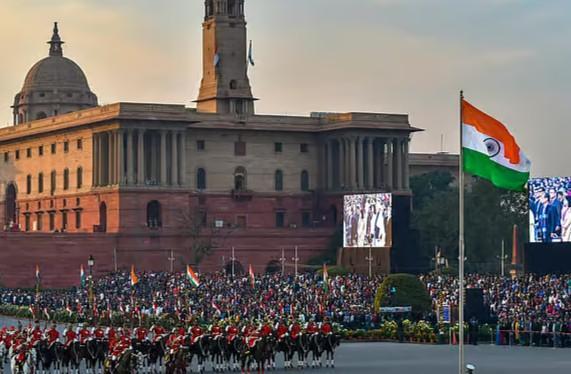
Why was August 15th selected as India’s Independence Day?
When we mark the occasion of India’s Independence Day on August 15th every year, we often wonder why this particular date was chosen for the country’s freedom from British rule. The answer lies in a combination of strategic and personal reasons, which were instrumental in shaping the course of India’s history.
Originally, the Indian Independence Act was passed by the British Parliament on July 18, 1947, and it was scheduled to come into effect on June 1948. However, the last Viceroy of India, Lord Louis Mountbatten, played a crucial role in preponing the date of India’s independence to August 15, 1947. This decision was taken in the midst of rising communal violence, which had the potential to delay the transfer of powers from the British to the Indian government.
Mountbatten’s decision was not solely driven by the need to avoid a delay in the transfer of powers. There was another significant reason that contributed to his choice of August 15 as India’s Independence Day. August 15, 1947, marked the second anniversary of Japan’s surrender in World War II. Mountbatten, who had served as the Supreme Allied Commander of the Southeast Asia Command during the war, had a personal connection to this date. This connection is often overlooked in the narrative of India’s independence, but it played a significant role in shaping the events that unfolded on August 15, 1947.
The decision to preponed the date of independence was not taken by Mahatma Gandhi or Jawaharlal Nehru, as is often believed. According to historians, Gandhi and Nehru were not consulted on the matter, and they were taken aback by the sudden change in plans. In fact, Nehru was initially reluctant to accept the new date, but eventually, he came around to the idea.
So, what were the factors that led Mountbatten to choose August 15, 1947, as India’s Independence Day? Firstly, the rising communal violence in the country made it imperative to hasten the transfer of powers. The partition of India and the ensuing violence had created a sense of urgency, and Mountbatten knew that the British government could not afford to delay the transfer of powers any further.
Secondly, Mountbatten’s personal connection to August 15, 1947, played a significant role in his decision. As the Supreme Allied Commander of the Southeast Asia Command during World War II, Mountbatten had played a crucial role in the Allied victory over Japan. The date of August 15, 1947, marked the second anniversary of Japan’s surrender, and Mountbatten wanted to commemorate this occasion in a significant way.
In a way, Mountbatten’s decision to choose August 15, 1947, as India’s Independence Day was a nod to his personal involvement in the Allied victory over Japan. It was also a way for him to mark the end of an era and the beginning of a new chapter in Indian history.
The choice of August 15, 1947, as India’s Independence Day has had a lasting impact on the country’s history. It has become a symbol of India’s struggle for freedom and its emergence as a sovereign nation. The date has been etched in the collective memory of Indians, and it is celebrated with great fanfare every year.
In conclusion, August 15, 1947, was chosen as India’s Independence Day due to a combination of strategic and personal reasons. Lord Mountbatten’s decision to preponed the date of independence was driven by the need to avoid a delay in the transfer of powers amid rising communal violence, as well as his personal connection to the date of Japan’s surrender in World War II. The choice of this date has had a lasting impact on India’s history, and it continues to be celebrated with great enthusiasm every year.






